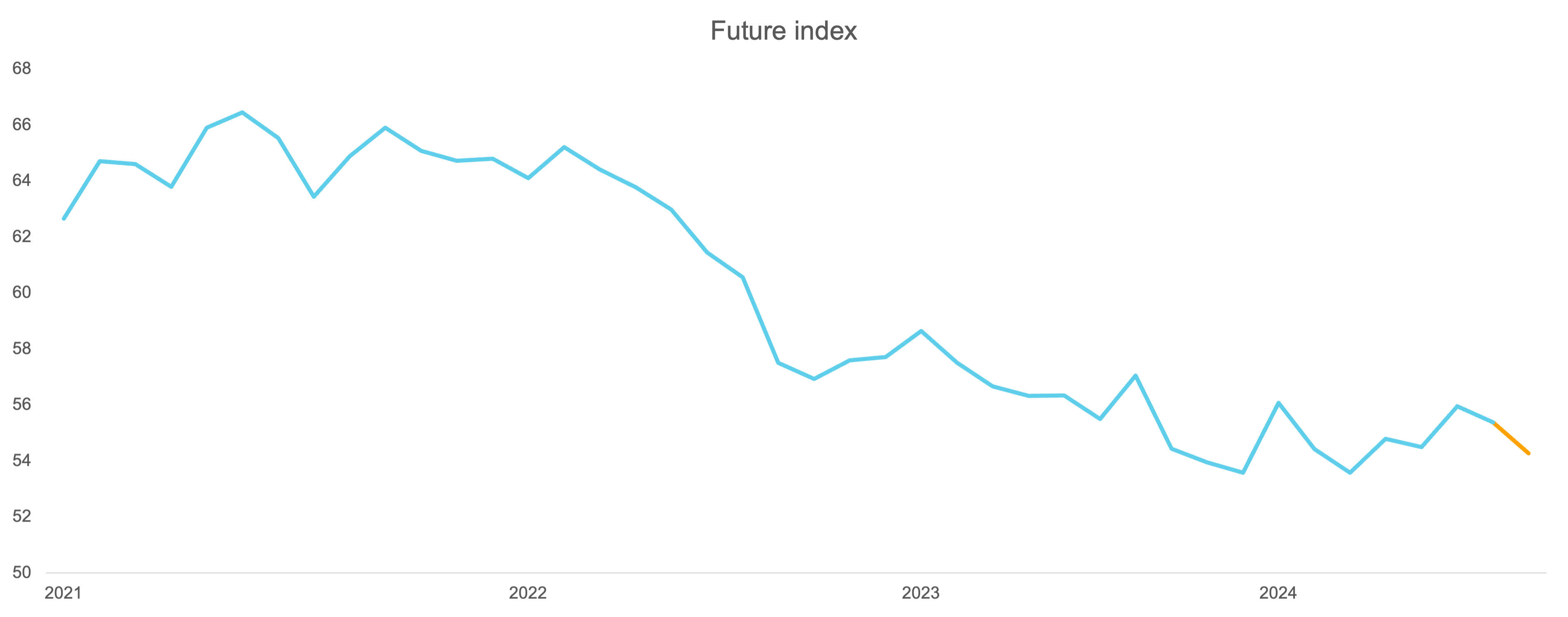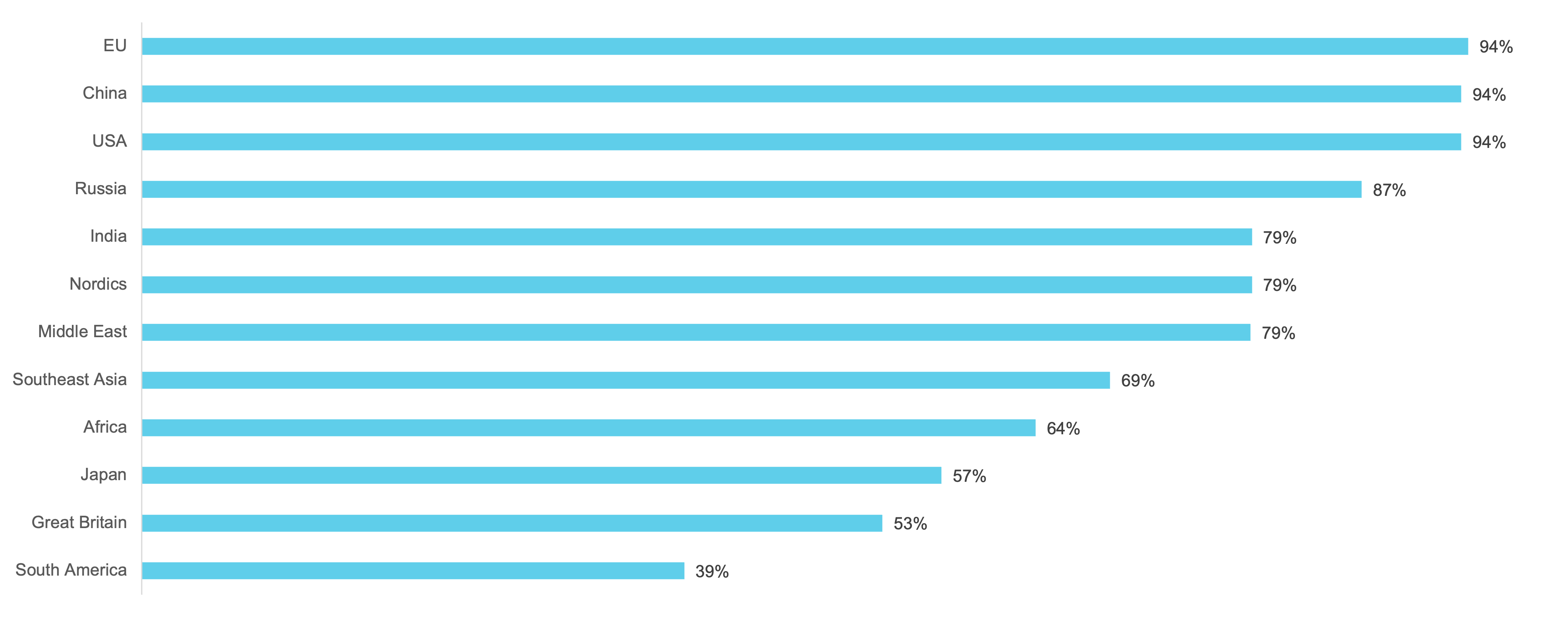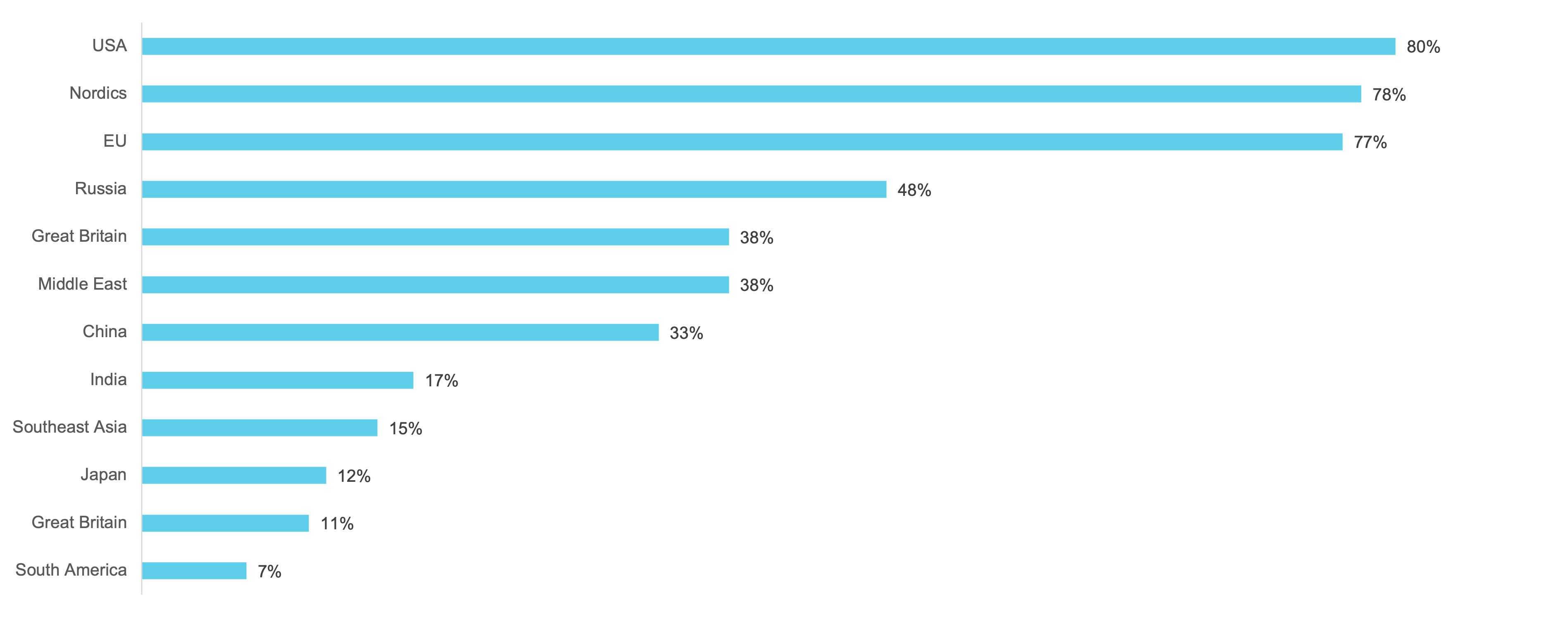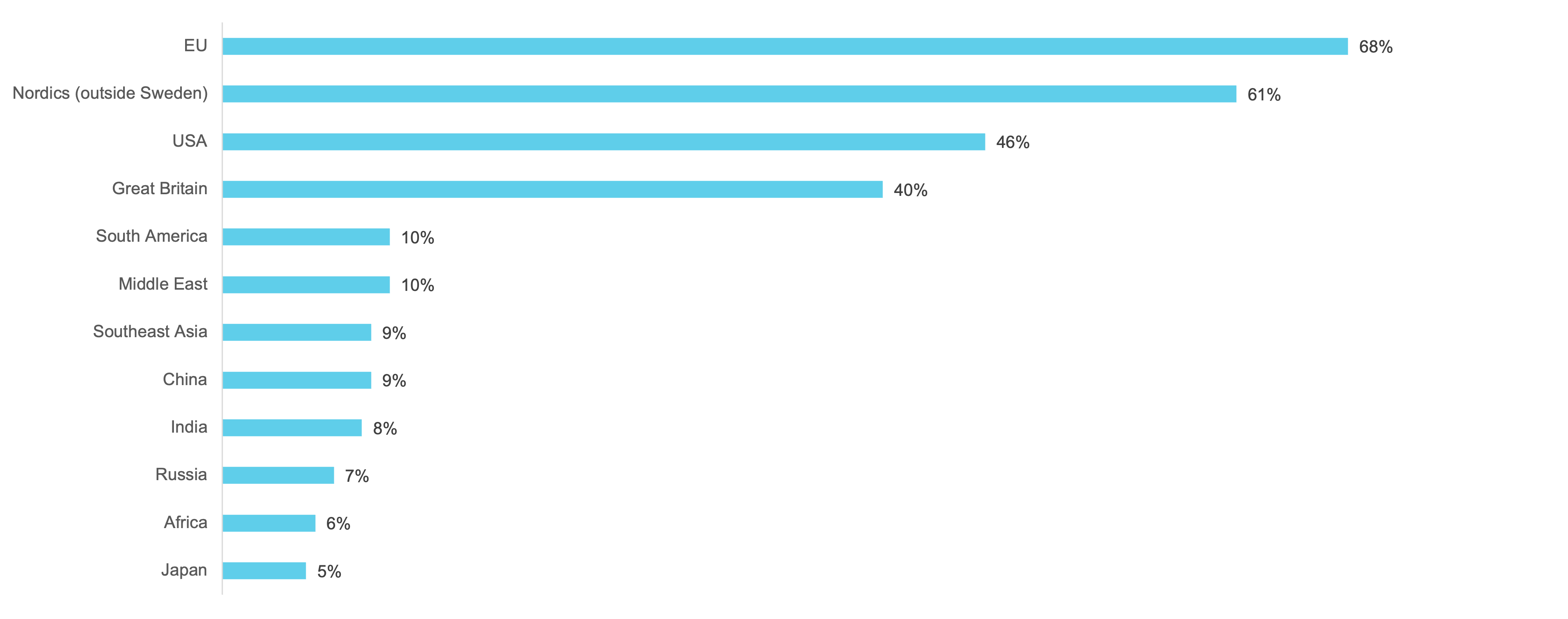The Future Barometer: Where is the Future?
In this Future Barometer, in the fall of 2024, we take a global perspective. Which parts of the world do leaders and managers in Sweden today think are most important to monitor, and where are the blind spots – what important progress, events, and developments do the Swedish business intelligence agencies risk missing? As usual, we also visit the Future Index, which is currently not moving significantly – as in the previous survey, the Swedish economy seems to be in a standby, without any significant development. Hopefully it will shift sooner or later.
Future Index: Lull
The future index is moving slightly downwards, but there is not a big difference and none of the sub-indices are moving particularly either. The global picture is still gloomy, the view of the industry's future is negative and there is a belief that the next decade in a broad sense will be characterized by pessimism – despite this, there is still an OK atmosphere in the workplace and more people are increasing the workforce than reducing it. It is with this in mind that we take a look at the degree of global insight among Swedish leaders.

Figure 1. Future index - an overall picture of optimism for the future, in terms of one's own organization, industry, and the world at large. Click on the figure to see a larger version.
The Great Powers are most Important
Not surprisingly, it is the great powers that come out on top in the question of which parts of the world are most important to monitor right now. A volatile economy in China, an election year in the US and new legislation in the EU, there is a lot going on this year – and the respondents in this survey also believe that it is precisely the EU, the US and China that are most important to monitor. After these three – which over ninety percent of respondents believe are of great or crucial importance for understanding the future – Russia comes in fourth place, probably due to the war in Ukraine. The rest of the Nordic region is not as important to understand, it seems – Nordic issues come in joint fifth place together with India as a global playing field. The least interesting parts of the world are Japan, South America, Africa and the United Kingdom, which fewer than two-thirds believe are of great importance for the development of the world at large. If you were to choose just one region to monitor, it currently seems to be the EU, which half of the respondents rate as most important.

Figure 2. A proportion who believe that the following regions are very important in terms of understanding the future and having a good overview of the world in general. Click on the figure to see a larger version.
Time for a Study Trip East?
How good are Swedish leaders at global business intelligence? The EU and the US are well understood – Swedish business intelligence officers at least believe themselves that they have a good overview of what is happening in those parts of the world, and also a very good overview of developments in the Nordic region outside Sweden. After that, however, the understanding drops quite dramatically. Although ninety percent classify China as important for understanding the future, only a third say they understand what is happening in the country. Russia is the region that is most closely watched beyond the US, the Nordic nations, and the EU, again probably because of the war.
India is perhaps the biggest black swan: 80% of Swedish managers and leaders believe that what happens in India has a major impact on the future, but only 17% state that they are up to date! Maybe it's time for a study trip or subscribing to some Indian newspapers? India ends up surprisingly far down the list of good understanding, despite the fact that the country is (partly) English-speaking. In addition to India, China and Southeast Asia in third place are the regions where there is the greatest difference between the need to understand what is happening, and to actually follow developments there.

Figure 3. Proportion who say that they have a good overview of or closely follow developments in the following parts of the world. Click on the figure to see a larger version.
"Boots on the Ground"
One of the best ways to understand a place is to talk to a person with “boots on the ground”, and in today's world, a global network of contacts is more important than ever. With that in mind, it is interesting to look out at where in the world Swedish leaders and managers have contacts they can check in with to understand the news worldwide. Here, the tendency towards the West becomes even clearer: the EU and the rest of the Nordic countries are the only two regions where a majority have any personal contact who can update them on developments on the ground. After that come the English-speaking countries of the United States and Great Britain, then contacts suddenly become scarce.

Figure 4. Percentage who know someone who lives and works in the following regions. Click on the figure to see a larger version.
South America is the least interesting region according to the respondents but leads the league among the more unusual contacts with about 10% who know someone in the area. Only nine respondents in the entire survey know someone in Japan, which corresponds to fewer than 5% of leaders. Here, however, the biggest blind spot is not India but Russia, where very few respondents state that they know anyone within the country, even though the region is perceived as very important to understand. Not surprising perhaps because of the closed borders, but still remarkable – during the Cold War there was talk of "Kremlinology" and today there seem to be very few Swedish managers and leaders who personally know anyone who is in Russia. Understanding how ordinary people reason about a place means greater foresight and understanding when something dramatic happens – and it is almost a given that the country's future will be dramatic.
We want to know how businesses and public organizations see their future. That is why we have started Kairos Future's Future Barometer, where we through our network Kairos Future Friends with over 21,000 members, predominantly in leading positions, take the pulse of companies and organizations to follow developments. In this study, 224 people participated.
